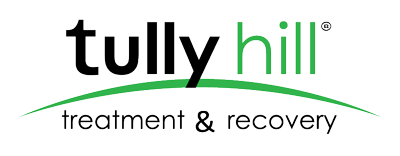Deciding to seek treatment for an addiction
is a challenging decision to make for many. In many cases, those who do enter a chemical dependency treatment program for drugs or alcohol do so as a result of a referral. Patients can be referred to a treatment program from several sources: a Human Resources Manager at their place of employment; their contact at an Employee Assistance Program (EAP); or a lawyer overseeing their case, as well as hospital or medical staff and family or friends.
For those who may not be personally close to or not interacted at length with the potential patient, such as EAPs, it can be difficult to discern whether or not he or she is in need of treatment. We’ve pulled together a list of questions that can be used to determine whether the individual you’re working with could benefit from formal substance abuse treatment. It is important that you take the time to ask these questions, and not make assumptions, even if you’ve loosely discussed some of these in the past.
10 Questions to Ask:
- Is substance use causing any problems at work or home?
- Is the use of the substance continuing despite it being hazardous (operating a vehicle or machinery, playing sports, etc.)?
- Has the use of the substance caused any legal problems (i.e. a DWI or marital or financial problems)?
- Is the use of the substance continuing despite harmful consequences (physiologically to self or to family and peers)?
- How much of the substance is being taken? Is intoxication being reached with the substance?
- Has the client or employee experienced withdrawal? Are they using the substance to avoid withdrawal?
- Has the substance been used for a longer period of time or more frequently than intended?
- Have past attempts at cutting down on or controlling substance use been unsuccessful?
- Is the individual spending a large amount of time obtaining, using, and/or recovering from the substance?
- Have social, occupational, and recreational activities been reduced or abandoned as a result of this substance?
These questions will give possible referral sources a clearer idea of whether an in-patient treatment program referral makes sense.
For EAPs and those more experienced with identifying substance abuse, consider the following points as well:
- Is there a history of any kind of abuse?
- Is there a history of any kind of psychological trauma?
- Is there a history of previous substance abuse treatment?
Having answers to these questions can help ensure that the individual truly needs treatment, and make it easier to complete the referral process. This process will help identify more clearly if the individual needs formal substance abuse treatment, and aid them in getting the help they need.
Please note that, whereas most if not all of our older blog posts do not have appropriate, non-stigmatizing language – i.e., substance use disorder in place of addiction and/or chemical dependency – all subsequent posts do and will retain language that avoids propagating negative stereotypes and biases through the use of slang and idioms.
Likewise, we have pledged to follow the guidelines set forth by the Office of National Drug Control Policy and that are conceptually and in general endorsed by the American Society of Addiction Medicine (ASA), the federal Substance Abuse and Mental Health Services Administration (SAMHSA), and other federal and state entities governing and regulating substance use disorder. We will therefore now use person-first language that respects the worth and dignity of all people; that focuses on the medical as well as clinical nature of substance use disorders and treatment; and that promotes the recovery process.










